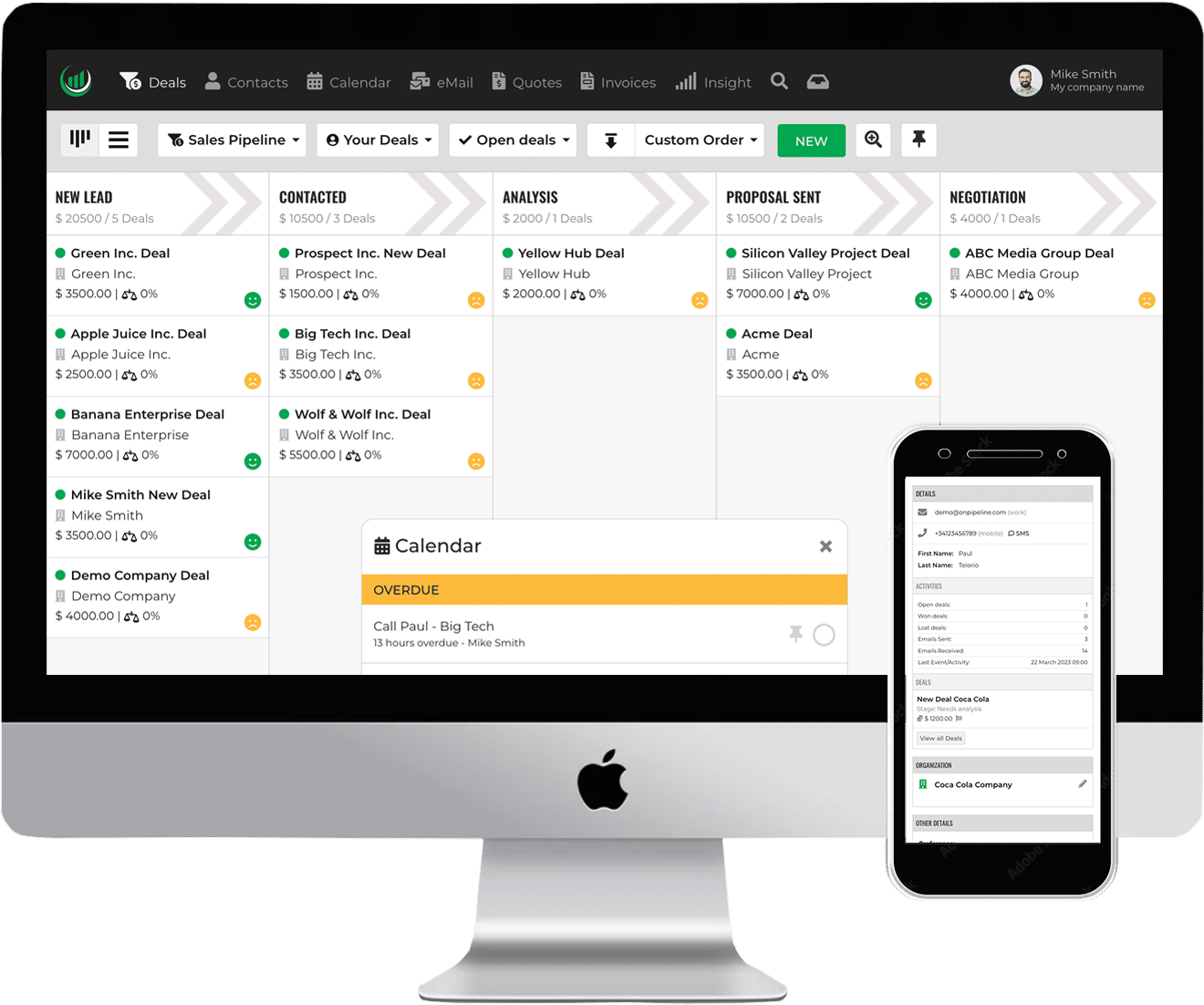The success of your business heavily relies on its ability to effectively manage customer relationships. That’s where Customer Relationship Management (CRM) databases come into play. CRM databases are powerful tools that enable teams to streamline their processes, enhance customer interactions, and ultimately drive growth.
As organizations strive to stay competitive in today’s fast-paced business environment, leveraging the power of CRM databases becomes imperative for sales success.
We will analyze the concept of CRM databases and delve into how they can benefit sales teams, transforming them into efficient and revenue-generating powerhouses.
Understanding CRM Databases
A CRM database is a centralized system that stores and organizes crucial customer information, such as contact details, interactions, purchase history, preferences, and more.
This valuable repository provides a comprehensive view of every customer, empowering sales teams to gain deeper insights into their clientele.
With a CRM database in place, sales professionals can move away from spreadsheets, sticky notes, and fragmented systems, and embrace a unified platform for managing customer relationships.
Enhancing Sales Efficiency
One of the key advantages of a CRM database lies in its ability to enhance sales efficiency. By integrating various sales functions into a single system, CRM databases streamline sales processes, saving time and reducing administrative burdens.
A few tips to maximize sales efficiency using a CRM database:
Lead Management
With a CRM database, sales teams can easily track and manage leads, ensuring no potential customer falls through the cracks. Assign leads, set reminders for follow-ups, and track progress within the CRM system.
Example: Sales representative A can assign a new lead to sales representative B through the CRM database, enabling seamless collaboration and efficient lead conversion.
Opportunity Tracking
A CRM database allows sales teams to track opportunities throughout the sales pipeline. Keep a record of the stages, probability of closure, and key activities associated with each opportunity.
Example: Sales manager X can use the CRM database to identify opportunities that are stuck in the pipeline and assign specific actions to the sales representative responsible for moving the deal forward.
Improved Customer Interactions
With a CRM database, sales teams gain a holistic view of their customers’ preferences, behaviors, and purchase history. Armed with this knowledge, sales professionals can personalize their interactions, tailor their sales pitches, and anticipate customer needs more effectively.
Here are a few tips for improving customer interactions using a CRM database:
Personalization
Leverage the customer data stored in the CRM database to personalize your communication with clients. Address them by name, reference their previous interactions, and recommend relevant products or services.
Example: Sales representative Y can refer to a customer’s previous purchase history stored in the CRM database and suggest complementary products during a sales call, increasing the chances of upselling.
Proactive Outreach
Use the CRM database to schedule reminders and alerts for follow-ups, ensuring timely communication with customers. Stay on top of important dates, such as contract renewals or birthdays, to proactively engage with clients.
Example: Sales representative Z can set a reminder in the CRM database to reach out to a client one month before their contract renewal date, allowing ample time for negotiations and preventing the risk of losing the customer.
Data-Driven Decision Making
In today’s data-centric world, making informed decisions is crucial for sales success. CRM databases provide sales teams with valuable insights and analytics, enabling data-driven decision making.
A few tips for leveraging CRM data to make smarter decisions:
Performance Analysis
Utilize the analytics and reporting features of the CRM database to track sales performance metrics. Identify top-performing products, regions, or sales representatives to optimize resource allocation and focus on high-impact areas.
Example: Sales manager W can generate a report from the CRM database to analyze which products are generating the highest revenue and allocate more resources towards their promotion and sales.
Forecasting and Predictive Analytics
Leverage historical data stored in the CRM database to forecast future sales trends. Identify patterns and customer behaviors to anticipate demand and plan sales strategies accordingly.
Example: Sales manager Y can analyze the CRM database to identify seasonal trends and adjust inventory levels and marketing campaigns accordingly, ensuring optimal stock availability during peak demand periods.
Collaboration and Teamwork
CRM databases foster collaboration and teamwork within sales organizations. Sales representatives can easily share information, collaborate on deals, and assign tasks to team members
Deal Collaboration
Utilize the CRM database to create a centralized hub for team collaboration on deals. Share important documents, assign tasks, and track progress within the CRM system.
Example: Sales representative Z can create a deal collaboration space within the CRM database, where team members can discuss strategies, share competitor insights, and collectively work towards closing the deal.
Knowledge Sharing
Encourage sales teams to share best practices, success stories, and customer insights through the CRM database. Create forums or discussion boards within the system to facilitate knowledge exchange.
Example: Sales representative A can share a successful customer case study through the CRM database, inspiring other team members and providing them with valuable insights on effective sales techniques.
Customization and Integration
When adopting a CRM database, it is crucial to customize it to align with your business processes and sales workflows. Tailor the system to capture relevant data fields, track essential metrics, and accommodate specific sales stages and terminology.
This customization ensures that the CRM database becomes a seamless extension of your sales operations, minimizing disruptions and resistance from the sales team.
Integration with email clients, calendar applications, and other communication platforms enables automated syncing of data and streamlines workflows.
Sales representatives can access customer information, update records, and view schedules directly from their familiar tools, reducing the need for manual data entry and improving overall efficiency.
Training and Adoption
Introducing a CRM database into your sales organization requires proper training and change management strategies. Conduct comprehensive training sessions to familiarize the sales team with the functionalities and benefits of the CRM database. Highlight how it will simplify their tasks, improve customer interactions, and boost their overall productivity.
Encourage early adoption by identifying “champions” within the sales team who can lead by example and advocate for the CRM database. These champions can share success stories, offer guidance, and address any concerns or resistance from their peers. Emphasize the long-term benefits of the CRM database, such as improved sales performance, enhanced customer relationships, and increased commission potential, to motivate widespread adoption and acceptance.



